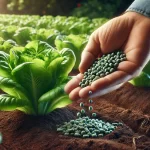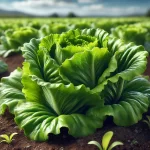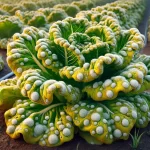The debate between hydroponic and soil-grown lettuce cultivation has gained relevance among producers and consumers seeking to optimize quality, sustainability, and efficiency in farming. Both methods have their advantages and challenges, and the choice depends on technical, economic, and nutritional factors. In this article, we analyze the key differences between hydroponically and soil-grown lettuce, explore their nutritional impact, and provide practical tips for producers and consumers.
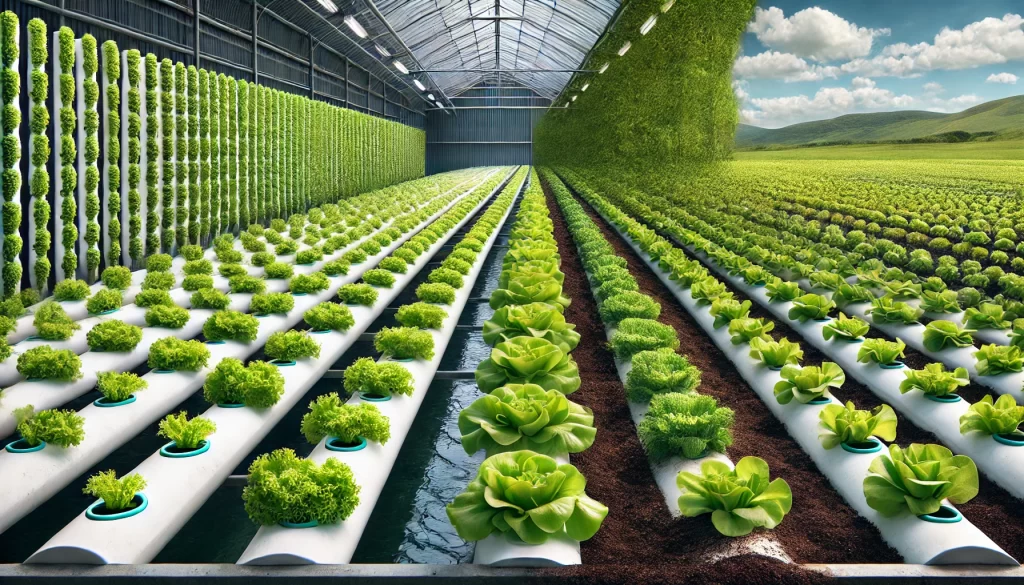
Technical Comparison Between Cultivation Methods
Hydroponic Lettuce
Hydroponics is a soilless cultivation method that uses nutrient solutions to feed plants. This controlled system allows:
- Water Optimization: Recirculation and efficient use of water, reducing waste.
- Controlled Nutrients: Precise adjustment of the nutrient solution, which can improve product quality.
- Accelerated Growth: Controlled environments (light, temperature, pH) that can speed up growth.
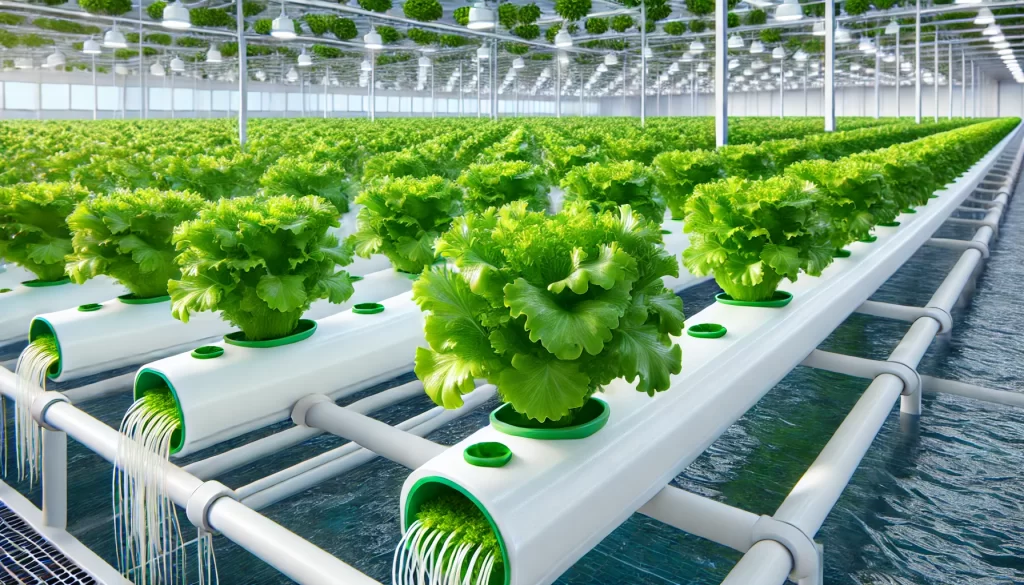
Soil-Grown Lettuce
Traditional soil cultivation involves planting lettuce in the ground, leveraging natural fertility and beneficial microorganisms:
- Sustainability: Use of organic and regenerative practices to improve soil health.
- Biodiversity: Promotes ecological balance through interaction with the natural environment.
- Lower Initial Costs: Does not require sophisticated technological infrastructure.
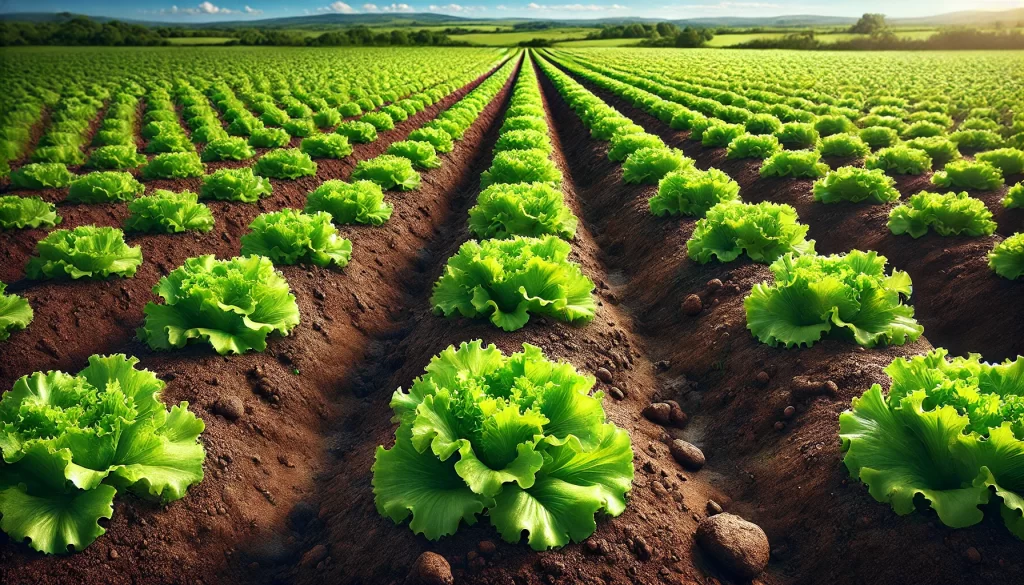
Comparative Table: Hydroponics vs. Soil Cultivation
| Aspect | Hydroponic Lettuce | Soil-Grown Lettuce |
|---|---|---|
| Water Usage | Efficient, with nutrient recirculation | Higher consumption, depends on rainfall |
| Nutrient Control | Precise, solutions tailored to each stage | Less control, depends on organic or chemical fertilizers |
| Growth Speed | Faster due to optimal conditions | Normal, influenced by climate and soil |
| Initial Costs | High, investment in technological infrastructure | Relatively low, minimal infrastructure required |
| Sustainability | Lower environmental sustainability, intensive use of technological resources | Greater biodiversity and soil health, especially in organic farming |
Grow Lush Greens with Sereniseed!
Discover the Certified Organic Green Leaf Lettuce Seed Collection by Sereniseed. This 10-variety pack features Green Towers Romaine, Winter Density, Dark Lolla Rossa, Black Seeded Simpson, and more, perfect for fresh salads and healthy meals. 100% organic, non-GMO, and includes a handy growing guide.
Buy Now and Start Growing! AgronoBlog – Agriculture Blog
AgronoBlog – Agriculture Blog 